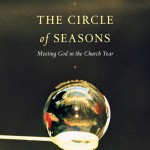I lie against my mother on the brown plaid sofa in the living room of our mobile home, a sea of ochre-orange carpet rolling out from under us in every direction. In her small strong hands, she holds a pea-green book, turning the pages as she reads aloud.
We are almost to the end of the story, but I interrupt. “Read it again, Mama! Read it again.”
She reads it again. “Lambert was terrified!”
My eyes go wide as Lambert’s in the goofy drawing in the book. His mouth yaws in a grimace of terror, and his brown mane stands straight out in every direction.
But then something deep inside that scared and sheepish lion snaps. Just as the wolf attacks the sheepfold where Lambert has lived since he was a cub, Lambert leaps to his feet, roars the loudest roar he’s ever roared, and runs at the wolf, butting him off the nearest cliff.
I love this story.
In later years, my mother will recall how she’d sometimes hide the book she got so sick of reading it. Not me. I wanted it over and over and over again, especially that line, Lambert was terrified!
At least, that’s what my parents tell me. Truth is, I don’t actually remember them reading this story to me. I remember photos of them reading it to me. I remember reading the book to myself when I was older and able to read. But I don’t remember the endless readings themselves, readings that must have sunk this story deep into my psyche.
What does that do to a child, all those readings of the same story again and again? What did it do to me?
How much of my sense of myself as an outsider came from identifying with Lambert, the lion who was raised as a lamb; who was as strange and awkward a sheep as ever lived; who, whenever he played with the other lambs, quickly found himself turned head over tail and laughed at because of his clumsiness?
Or did Lambert not create but rather mirror a reality that I could not yet put into words? Did I identify with him because, at two, I had already begun to sense that I was different from my practical, pragmatic parents? That I both belonged and didn’t belong?
Or perhaps my love of scared little Lambert sprang from my timid, easily frightened temperament, and Lambert gave voice to the fear I already harbored in my young heart.
Or in reading his story again and again, did I begin to realize that the world is scary and wolves might come in the night and even home isn’t always safe and what do I do with that? Read it again, Mama! Read it right through to the end when the wolf goes flying off the cliff.
Perhaps that was why I loved it: perhaps Lambert’s story gave me hope that somewhere deep inside my small scared self was a lion that would emerge in time of need with a leap and a roar of courage.
I can’t know how much Lambert created the me I became and how much he simply reflected the me I was becoming. And in the end, I’m not sure it matters much whether the lion came first, or the lamb.
What matters is that when I am small and I lean into my mother’s safe side on the brown plaid sofa and I say, “Read it again, Mama!”—she does.
*****

I wrote this post in response to a writing prompt in John Wilson’s breakout session, “Wild Reading,” at the writers retreat I attended last week at Laity Lodge in west Texas.
The photos in the post are from Disney stills of the movie version of Lambert.



